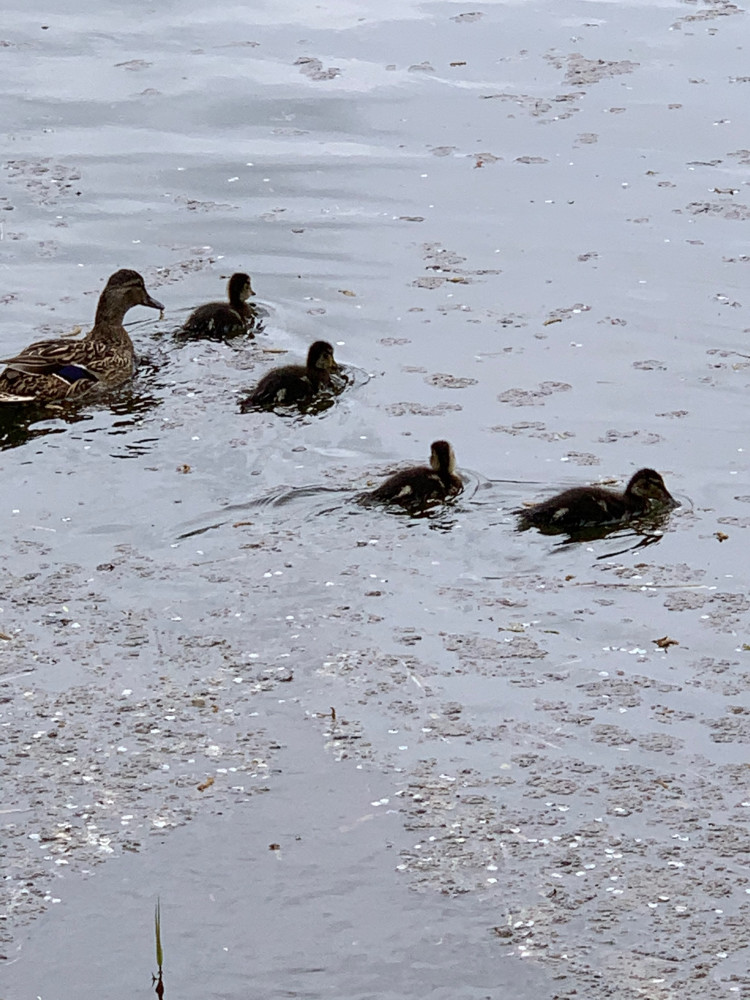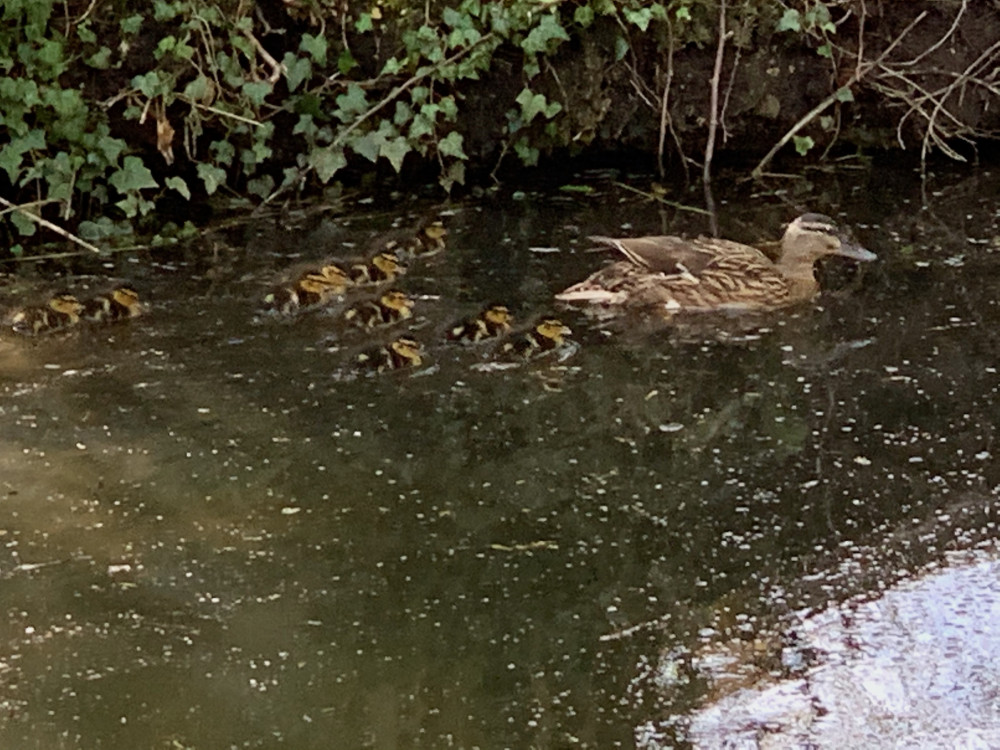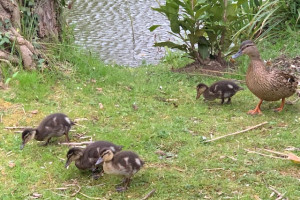Survival of the Fittest
Posted 03/05/2021 : By: Will & Sarah Draper
We all know how ‘survival of the fittest’ works. But it is heartbreaking to see it in action, as we have done over the last month or so at Badwell Ash Holiday Lodges. We have had three mallards sitting on eggs and the ducklings on two of the nests have now hatched. It is unbelievably cute to see the little fluff balls in their first few days, no bigger than a furry golf ball. However it is also rather traumatic to watch; the first duck had 12 ducklings and over the last 8 days these have been whittled down to just 4. The second duck has 11 ducklings, which hatched yesterday, and we are nervously watching to see how they fare. The third mum is still on the eggs, which we think will hatch imminently.

Female mallards make fantastic mothers. First they have to endure the persistent and mostly unwelcome attention of the drakes. Then they have to build a nest, stealthily to avoid giving clues to its location. Next they lay up to 12 eggs, one each day. Then comes an amazing feat of courage and endurance: she sits on the eggs without a break for 28 days, only leaving the nest for a quick drink of water once or twice a day. Once the eggs hatch, she chaperones the ducklings around 24/7 without leaving their side for a minute, continuously quacking instructions and warnings to her brood, whilst defending them against all comers: we have seen our female mallards even squaring up to Canada geese. Throughout this process the males do absolutely nothing of a helpful nature (sound familiar?); they join up with other drakes and just cruise around the lake preening and feeding.

Female mallards are dull brown, which seems unfair when the males get all the glamour in return for doing no work. However, being innocuous pays dividends when you have to sit on eggs for 28 days at the mercy of whatever predator is stalking you. The camouflage of the female mallard is incredible; it is possible to walk within a foot or two and not see her, even when you know she is there. And what nerve the mum possesses: not moving or flinching even when danger is a foot away. She has to stay motionless despite the wide range of predators that we have here at Badwell Ash: foxes, stoats, magpies, jays, hawks, buzzards, owls. Any of which would love a duck egg for tea.
And when all is said and done, one or perhaps two ducklings from each clutch of a dozen eggs will make it to adulthood, which seems scant rewards for all that effort. But, the mallards are thriving on our lakes, which is a fitting tribute to the brave mum.




